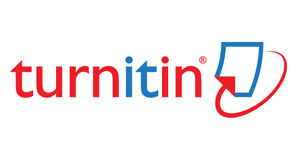MODEL OF MOSQUE AS ZAKAT MANAGEMENT CENTER
Abstract
The establishment of the National Zakat Agency (BAZNAS) is a form of the seriousness of the government in the management of zakat. According to Law No. 23/2011 on Zakat Management, BAZNAS can be assisted by Amil Zakat Institution (LAZ) in the management of zakat. The government manages zakat professionally and transparently. The serious government in this case is not without reason. This research tries to explore the role of zakat in using zakat not only as mahdhah worship but also as a social instrument. For that, we need a model of the mosque as a center for managing zakat.
This research method puts forward the library research approach because it includes qualitative research. The analysis uses a content analysis approach. The mosque model as a center for managing zakat requires a concept comprising four economic pillars of the mosque, The concept of a mosque as an integrated zakat manager requires 4 economic pillars of the mosque namely (1) Foundation based on the basic principles of Islamic economy (2) Level I is the center of economic activity, (3) The Second Floor for the economic institutions of the people such as Sharia Banking, BMT (4) the Mosque itself as a fund repayment of economic activities and economic institutions.
Keywords
Full Text:
PDFReferences
Anwar, A. Z., Rohmawati, E., & Arifin, M. (2019). Strategi fundraising zakat profesi pada organisasi pengelola zakat ( OPZ ) di Kabupaten Jepara. CIMAE: Conference on Islamic Management Accounting and Economic, 119–126.
Badan Amil Zakat Nasional (BAZNAS), P. K. S. (2020). Outlook Zakat Indonesia 2020. Pusat Kajian Strategis – Badan Amil Zakat Nasional (Puskas BAZNAS).
Center for Strategic Studies- Nasional Board of Zakat, B., & Facultas Economic and Business, U. of indonesia. (2019). The Concept of zakatnomics. Center for Strategic Studies- Nasional Board of Zakat, BAZNAS.
Desiana, R., & Afrianty, N. (2017). Landasan Etika Dalam Ekonomi Islam. AL-INTAJ, 3(1), 119–135.
Haryanti, S. C., Thohirien, A., & Huda, N. (2019). Pembuatan Sistem LAZM (Lembaga Amil Zakat Masjid) Jakarta Berbasis Web. Jurnal Teknologi Informasi YARSI, 6(1), 1–6. https://doi.org/10.33476/jtiy.v6i1.367
Kausar, A., Alauddin, M., & Kabir, M. R. (2016). A Masjid Based Zakat Management Model in Alleviating Poverty: Bangladesh Perspective. International Journal of Ethics in Social Sciences, 4(2), 2308–5096. http://www.crimbbd.org/wp-content/uploads/2017/06/4.2.6.pdf
Mannan, M. A. (1997). Teori dan Praktek Ekonomi Islam (M. Sonhadji, K. Parwataatmadja, M. S. Antonio, & M. Sigit (eds.)). PT. Dana Bbakti Prima yasa.
Mustofa, B. (2007). Manajemen Masjid: Gerakan Meraih Kembali Kekuatan Dan Potensi Masjid (1st ed.). Ziyad Visi Media.
Muthohar, A. M. (2016). Preferensi Masyarakat Terhadap Lembaga Zakat Dan Bentuk-Bentuk Pemberdayaan Dana Zakat. Inferensi, 10(2), 381. https://doi.org/10.18326/infsl3.v10i2.381-404
Novansyah, A., Sunardi, H., & Ramadhan, M. (2015). Sistem Informasi Pengolahan Zakat dan Infaq pada Masjid Agung Palembang. Jurnal Informatika Global, 6(1), 15–20.
Novianto, H. R., & Nafik HR, M. (2014). Mengapa Masyarakat Memilih Menunaikan Zakat di Masjid Dibandingkan Dengan Lembaga Zakat? (Studi Kasus Pada Masyarakat Desa Kramat Jegu Kecamatan Taman Kabupaten Sidoarjo). Jurnal Ekonomi Syariah Teori Dan Terapan, 1(3), 221. https://doi.org/10.20473/vol1iss20143pp221-236
Rifa’i, A. B., & Fakhururoji, M. (2005). Manajemen Masjid: Mengoptimalkan Fungsi Sosial-Ekonomi Masjid. Benang Merah Press.
Siswanto. (2002). Panduan Pengelolaan Himpunan Jama’ah Masjid (1st ed.). Pusaka Amani.
DOI: https://doi.org/10.24952/tijaroh.v7i1.3111
Refbacks
- There are currently no refbacks.
Copyright (c) 2021 At-tijaroh: Jurnal Ilmu Manajemen dan Bisnis Islam

This work is licensed under a Creative Commons Attribution-ShareAlike 4.0 International License.














